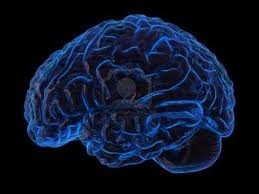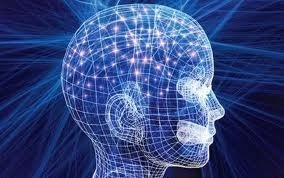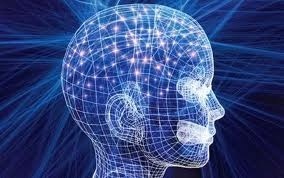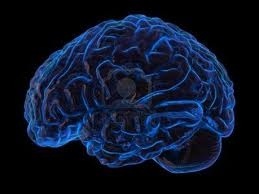Managing Your Emotions
Emotion [ih-moh-shun]- an affective state of consciousness in which joy, sorrow, fear, hate, or the like, is experienced, as distinguished from the cognitive or volitional states of consciousness.
Over the years, there have been many positions taken regarding feelings and emotions. Most recently, Kanye, in his imminent confusion, tweeted that “feelings are the only facts”. Concordantly, many a “think” have come along and posited things like “emotions are the truth of the moment” and in the realm of competition many theories revolve around the athlete or individual harnessing his or her emotions for the sake of comparative advantage.
As far as pop culture, Kanye’s tweet is very indicative of the confused world that exists on the mainstream level. I am not attempting to diminish his opinion, he is entitled to it, but I simply do not believe that emotions are anything remotely close to factual. They are instinctive and preconscious, therefore existing at levels that are not at our conscious control. Moreover, unless one is exceptional in the realm of spiritual sensitivity, emotions are primarily based on shortsighted and highly subjective datum, they are intensely biased. Ergo, the truth is rarely extricated from the tumult that is someone’s emotional faculty. How you feel is rarely little more than an interpretation, a perspective that has arisen out of personal introspection. Let me make this clear, however, that emotions are incredibly important when making decisions, they are our private divining rods that can often point in the direction of truth. However, they themselves, especially during moments of dense emotional activity, are rarely accurate.
A few posts ago in Eyes of Strangers and When Love Lasts: Principle of Objective Purpose, I went in depth about my beliefs in the importance of objectivity. I defined objectivity in two ways, looking at situation with a sober, unengaged mind, which is virtually impossible and not necessarily healthy and therefore offered an alternative method which is looking at a situation from as many perspectives as possible. Within the Brownian (my last name, very pretentious I know, but it makes things a bit simpler) school of thought, there are 5 parts that comprise the human condition: 1) Spirit 2) Mind 3) Body 4) Soul 5) Heart. Each of these components serve a particular purpose, offer pros and cons, and must be balanced against the other 4. When taking about emotions, clearly we are taking about the heart.
The heart is passionate, therefore it is volatile. Its power lies in the sheer force it applies to the individual. In terms of brute force, I would wager that the heart is the most effective, it can render a grown man helpless and cause a mother to literally move vehicles to save her child. The heart is not a faculty which cares much about logic or rational, sober thought; it is simply a vehicle of the instant. Thus when it swings and locks into a belief system, the response it evokes causes the individual to literally change his or her perception, hence the erroneous belief that it is the truth of the moment. The heart feels, passionately might I add, and therefore the average man or woman will be swept away in its powerful current. Furthermore, the heart is a complex system that is affected by all manners stimuli. Culture, geographical location, natural personality, upbringing, personal interests, music, and so forth are all factors which affect how often a person dips into their emotions and how precise those forays are.
Making decisions based on the emotions provide a few positives. Most obvious, an emotional choice is a powerful one, there is very little sway because of its ability to block any dissenting evidence. Also, the emotional choice usually pulls from such wellsprings as love or compassion, insecurity or fear, therefore, the choice is generally in line with the nature of the human being. Emotional choices are genuine, authentic and therefore provide a satisfaction that encompasses the whole being. The problem, however, is sometimes the emotional triggers that cause us to act one way or the other will create flawed decisional actions that make us look foolhardy or unstable. Moreover, when emotions become blindingly hot, they may in fact cuz us to act in opposition to our desired character, this is especially important of those in transitional areas. As teenagers become adults, they may be trying to slough away the old juvenile habits that are authentic representations of themselves, yet are not aligned with the maturity they are trying to gain a foothold on.
Thus, emotional management becomes paramount when discussion matriculation or any sort of upward mobility. No one has time to deal with the emotionally charged person, especially since, as aforementioned, emotions operate on limited information and cause incorrect conclusions to be jumped on far too often than is acceptable. Employers, managers, supervisors and the like need people who are thinking clearly so that objectives can be met. Lovers, family members, and close friends need a little emotion, but not too much so that the individuals choices don’t wreak havoc on the delicate stasis necessary in all intimate relationships.
Unchecked emotional choices are exceptionally dangerous when discussing strategy and tactics, because only the soberest of minds can see things for what they really are. As a consultant who has swore an oath to the importance of strategy, I absolutely cannot condone overt displays of emotion in choices unless strategically important, for instance if a manager needs to inspire morale, he may just have to get angry. However, that is more of a display than a cold, hard choice.
What I recommend to the person looking for success on any level, is to practice objective thought modeling. Colloquially referred to as “above & below” by my partner and myself, it is creating a matrix which encompasses many perspectives, emotional responses, and reward-consequence assessments, then finding the acceptable trend line within. This requires immense discipline and patience, but I guarantee that it will optimize decisional results.
Emotions are the fuel which charge a person’s passion, therefore just like fuel, it must be monitored closely and calibrated for particular circumstances. Performance grade gasoline, with octane ratings above 91, serve a purpose different than standard 87. So instead of always being the high octane, frivolous individual, wrought with inefficiency, one should expose themselves to more rational pursuits.
In conclusion, although I am an avid believe that this is a system that can work for everybody, I am aware that is not acceptable to everybody. The emotions are far too strong, appear far too real (although they are epitome of unreality) and far too important for most people to let go. They are the easiest available heuristic and as stated the easiest way to ascertain how a person truly, feels about something. Therefore, they are heavily relied upon, damn near mandatory necessities for the bulk of people. As leaders, it is important to know how to deal with these people, you cannot try and level with them using clear cut rationale, but instead you must appeal to the very same emotions they are prone to using. You must employ a sober mind because as someone who makes the heavy decisions and probably under a heap of stress, emotions will cause you to deteriorate and miss opportunities during your pointed duress. Leave the instability to your employees and make a practice of harnessing your emotions through strategic thought. By doing so you keep the forcefulness of an emotional response, with the accuracy and effectiveness of a rational one.
bryce




